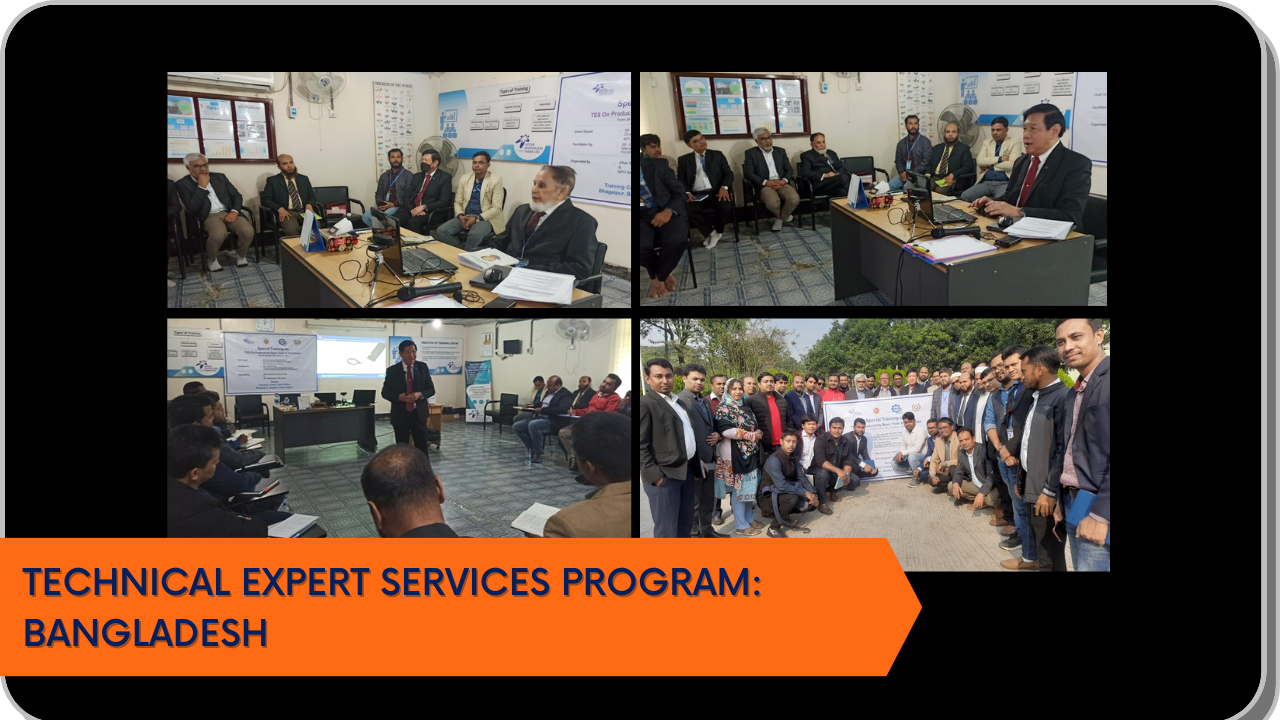
Select Page

Understanding and application of productivity concepts, tools, and techniques help optimize the utilization of resources and increase the quality of products and services. This is significant when all resources are becoming scarcer while competition among businesses is increasing. It also makes capacity building, particularly productivity knowledge enhancement, vital for any organization to improve its operations and efficiency.
As part of its in-country Technical Expert Services (TES) Program, the National Productivity Organisation Bangladesh along with the APO Secretariat organized a five-day face-to-face project on Basic Productivity Tools and Techniques for Bangladesh, 29 December 2022–2 January 2023 in Dhaka, Bangladesh. Fifty representatives from livestock feed product company Aftab Feed Products Ltd (AFPL), its associated business units, and the NPO Bangladesh attended the training course conducted by a resource person from Singapore.
The TES project shared knowledge through practical case studies on basic productivity concepts, principles, tools, and techniques. Participants also had the opportunity to develop productivity schemes to improve efficiency in operations, production, and management processes in AFPL with the assistance of the resource person.
The livestock feed industry is often characterized by the utilization of huge amounts of raw materials. A lack of knowledge and skills can lead to waste and inefficiency. The TES project was designed to help AFPL staff increase efficiency in operational, production, and management processes. Topics covered were concepts and principles of productivity and its measurement, kaizen and the plan-do-check-act cycle, problem-solving tools and techniques, 5S housekeeping, lean management, basic industrial engineering, total quality management, quality circles, and suggestion schemes.
The project received positive feedback from participants in terms of the relevance of knowledge sharing, preparation of training materials, course duration, and topics selected.